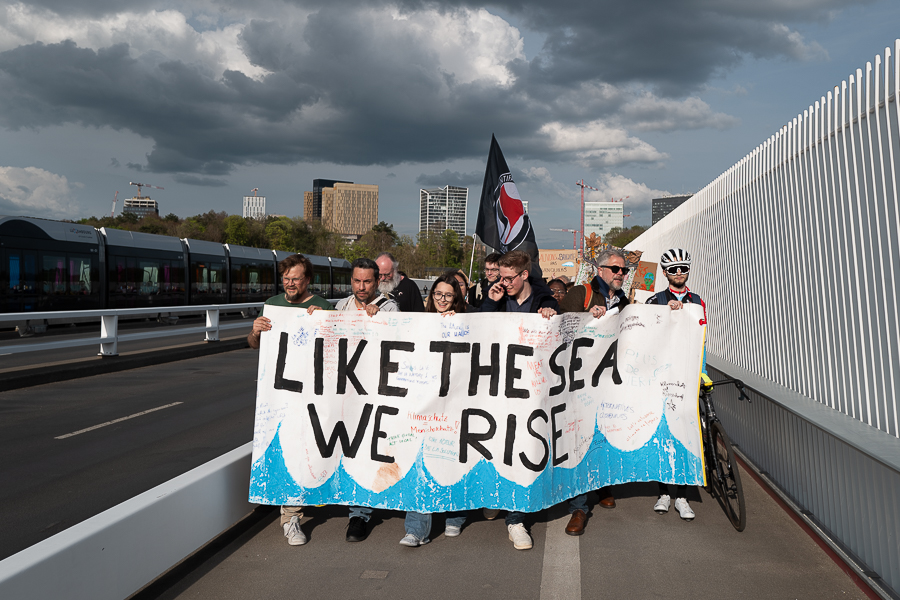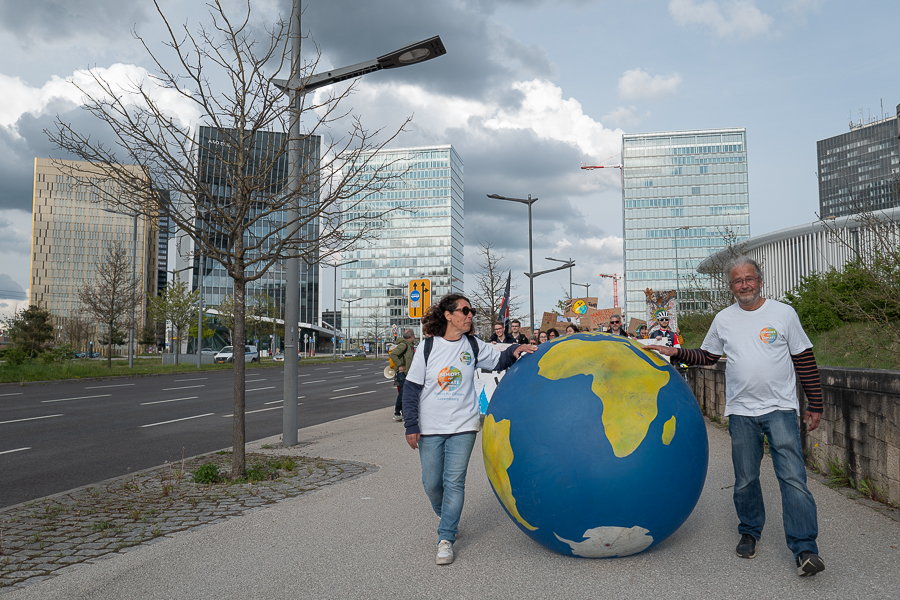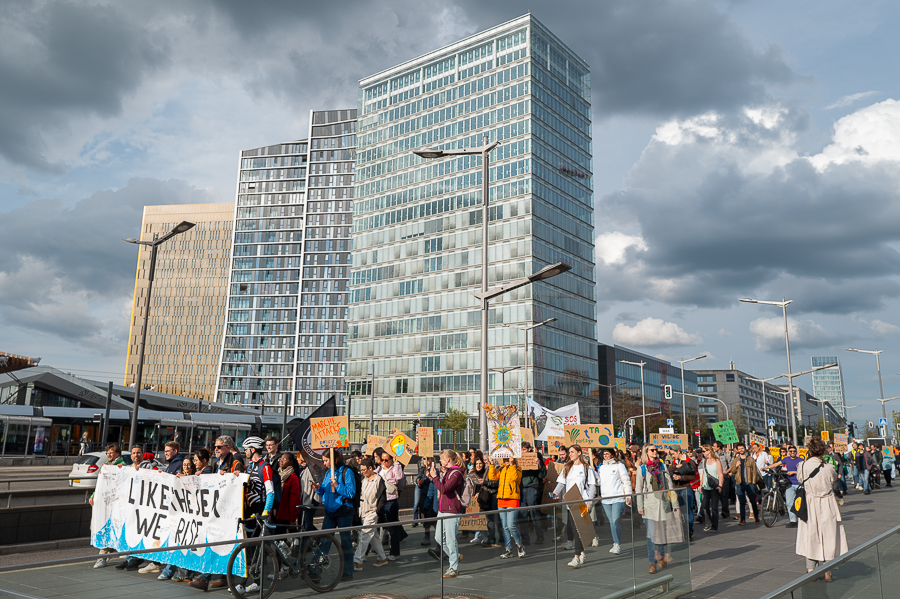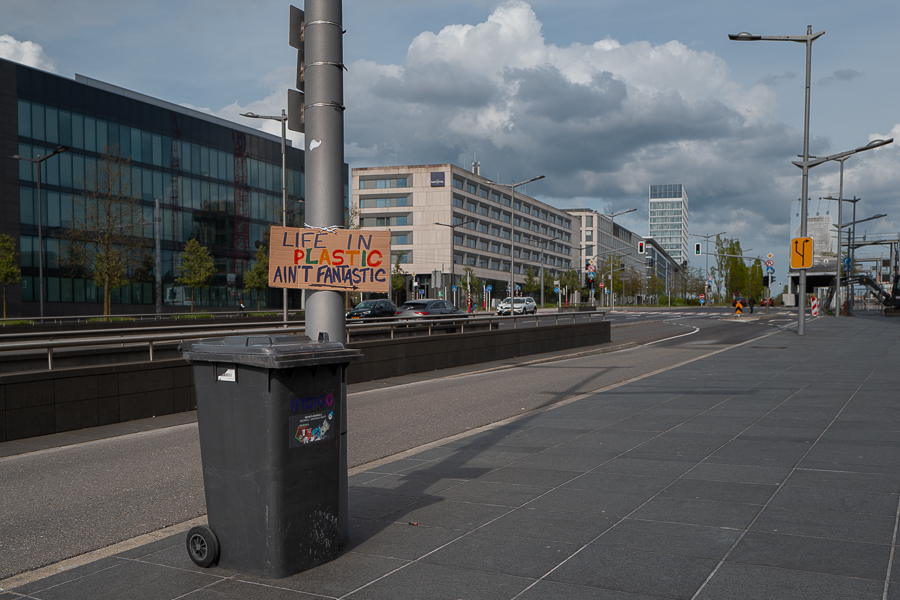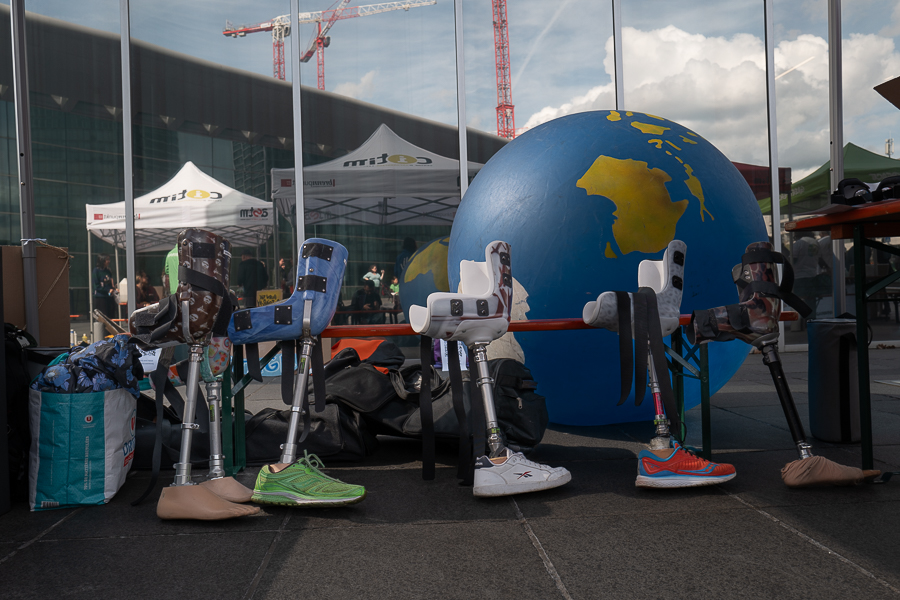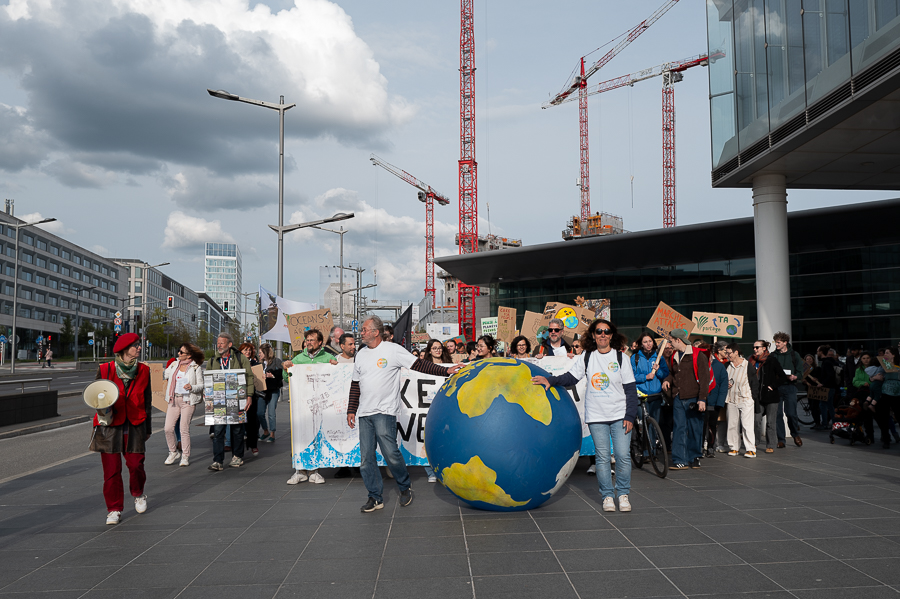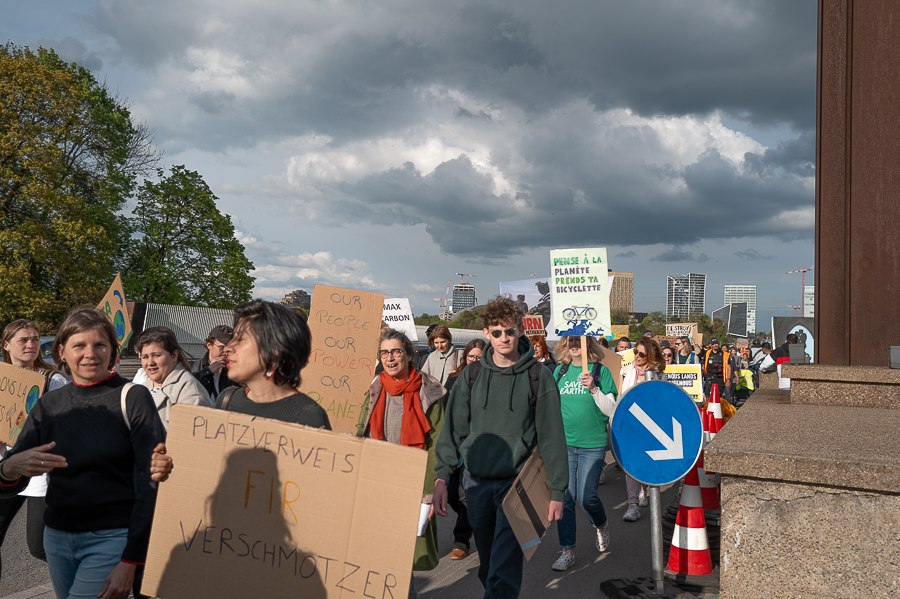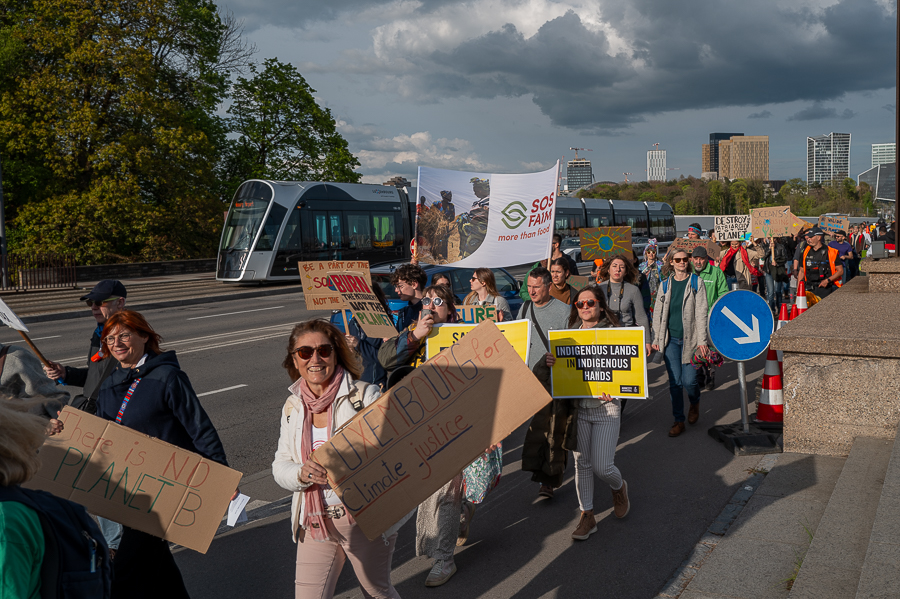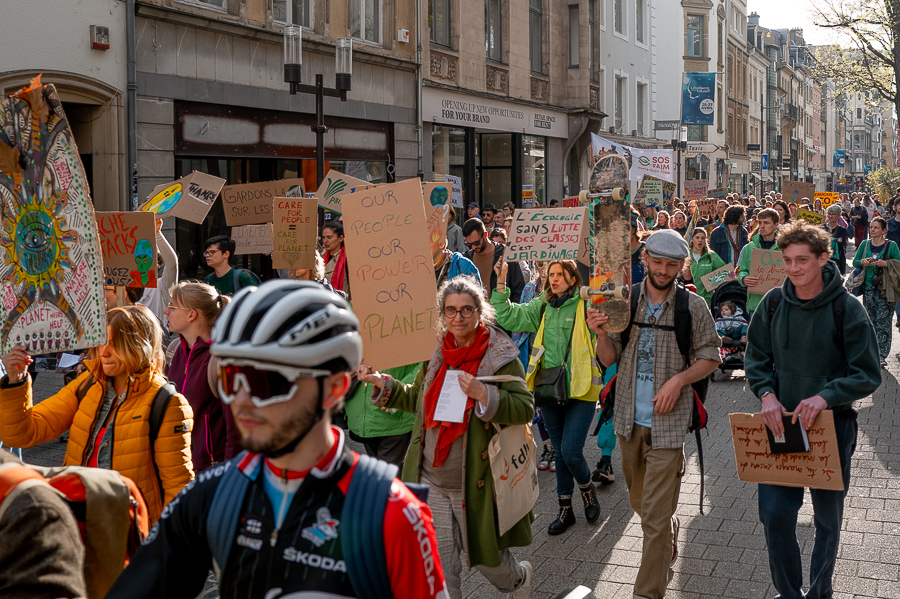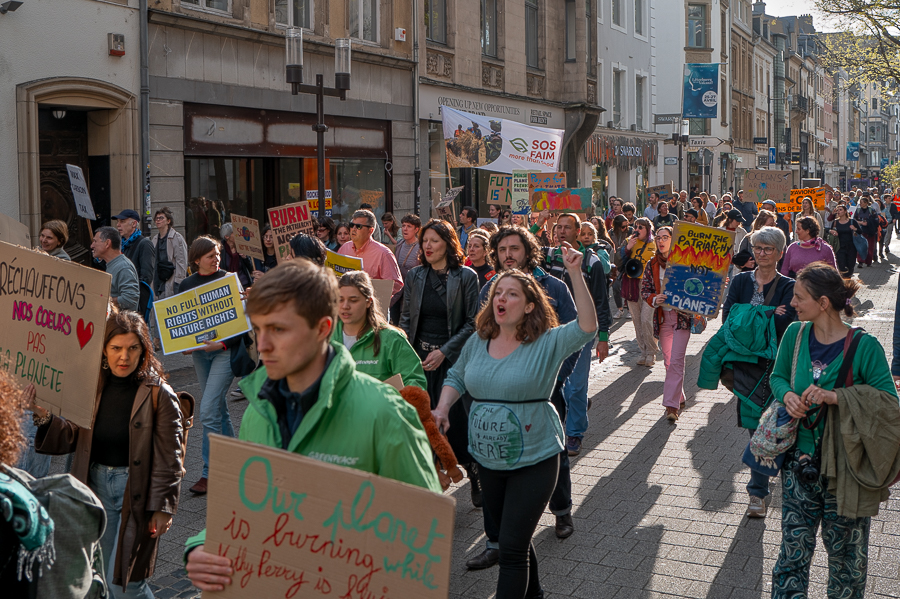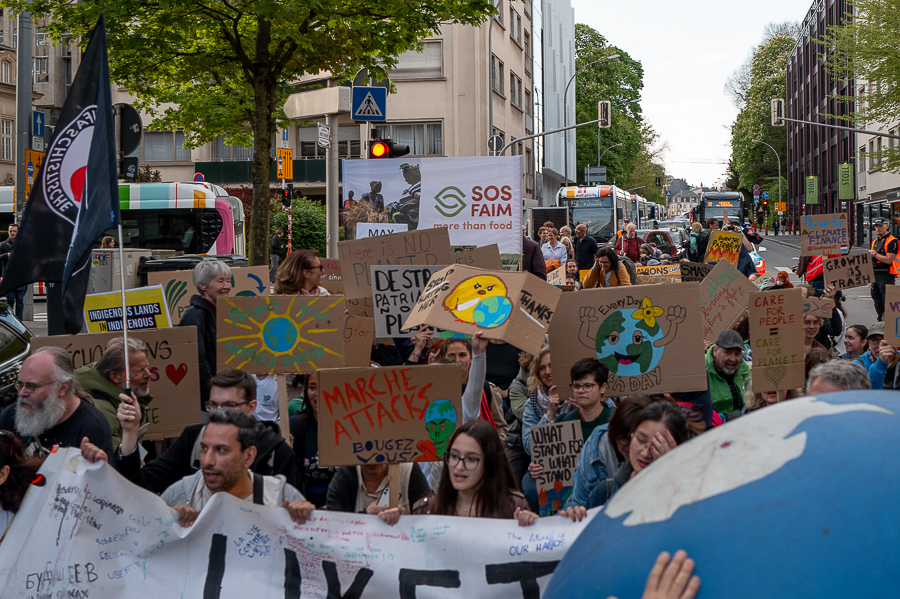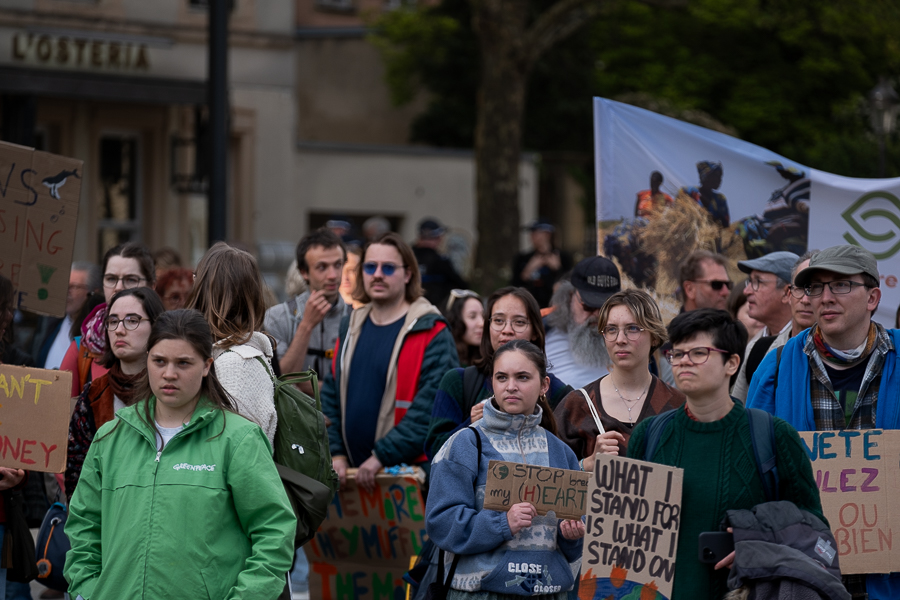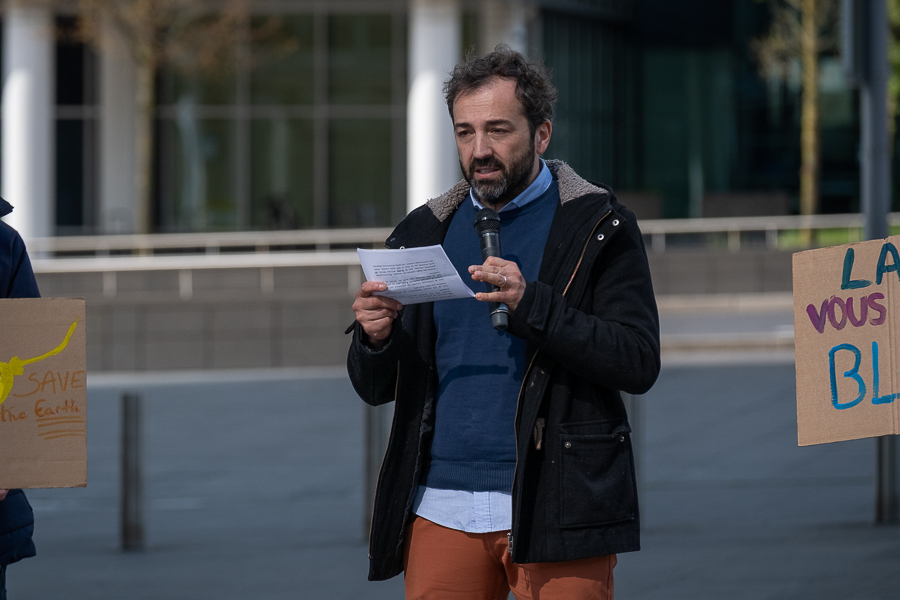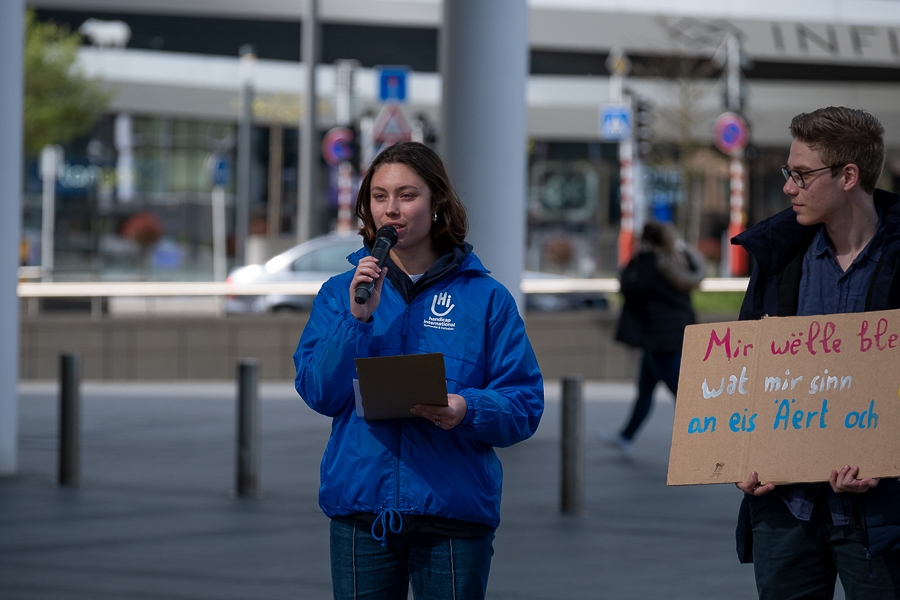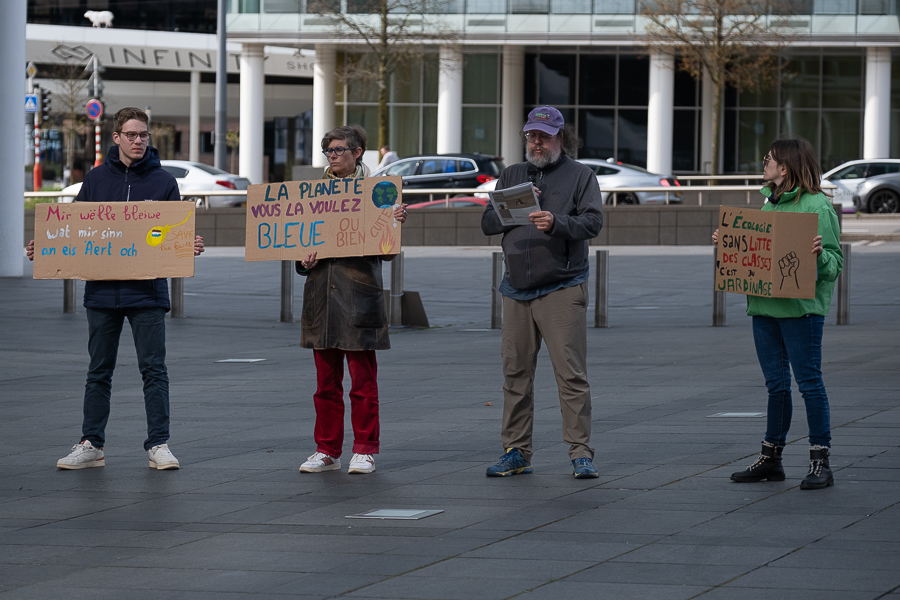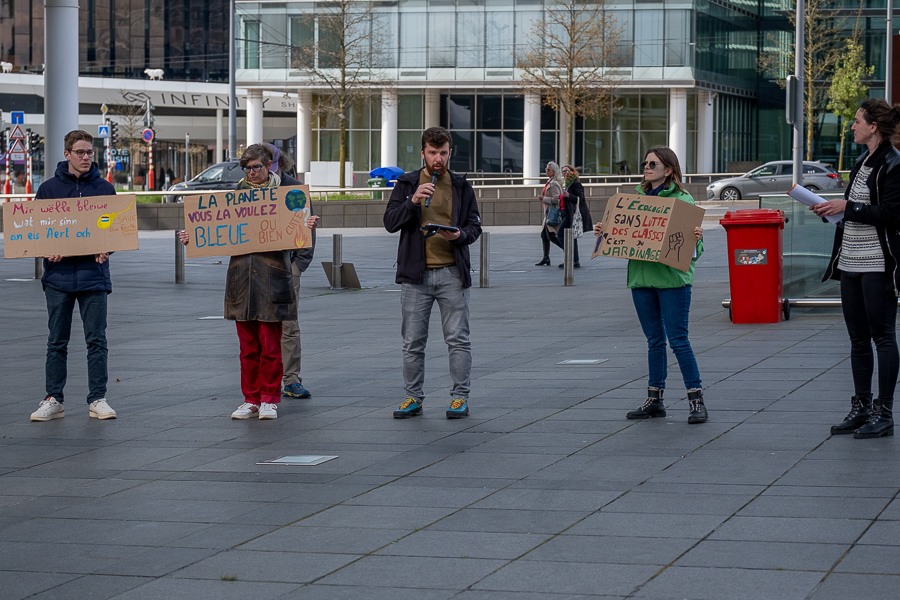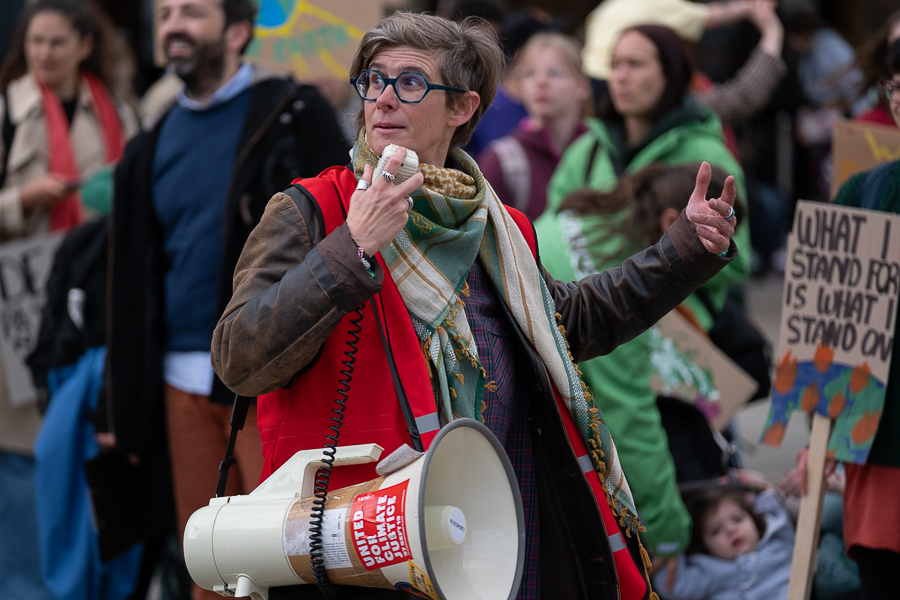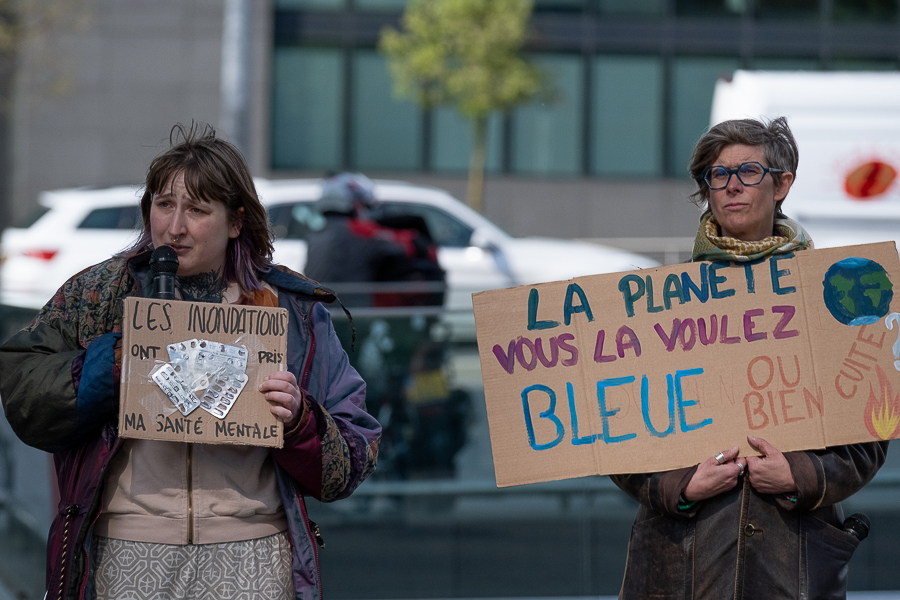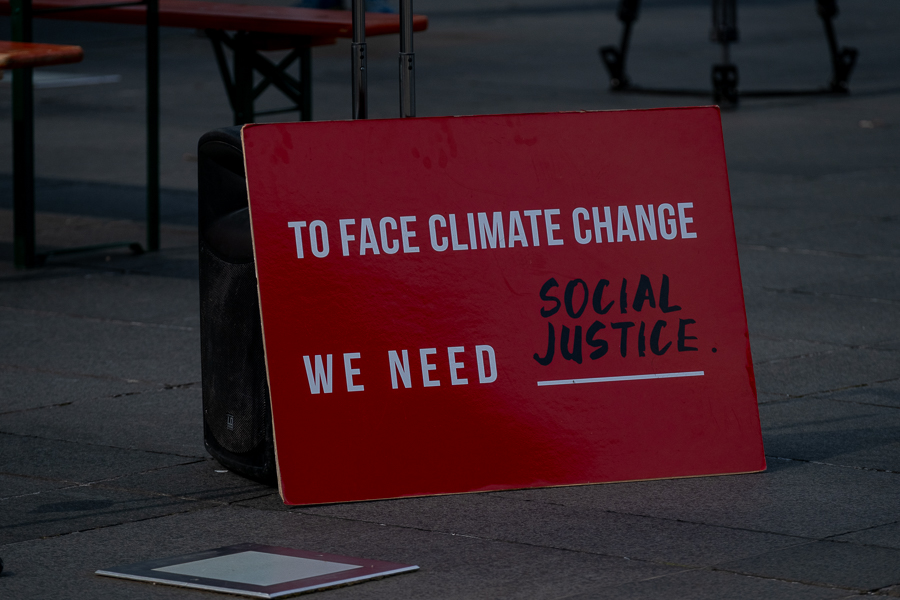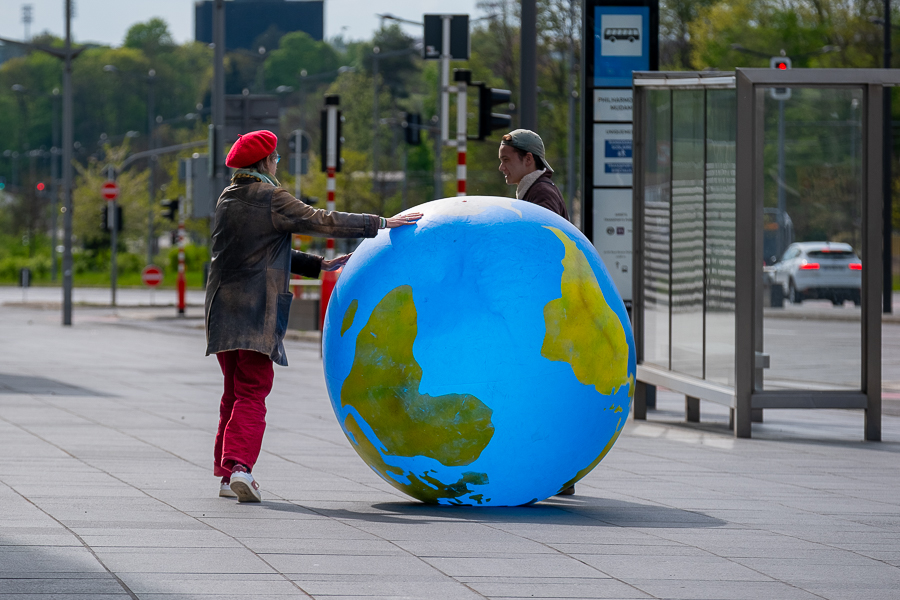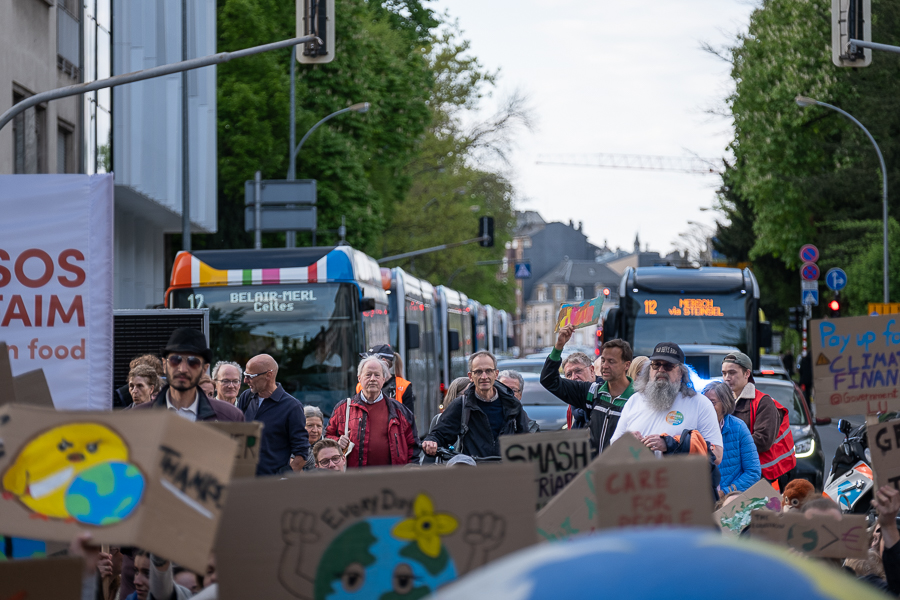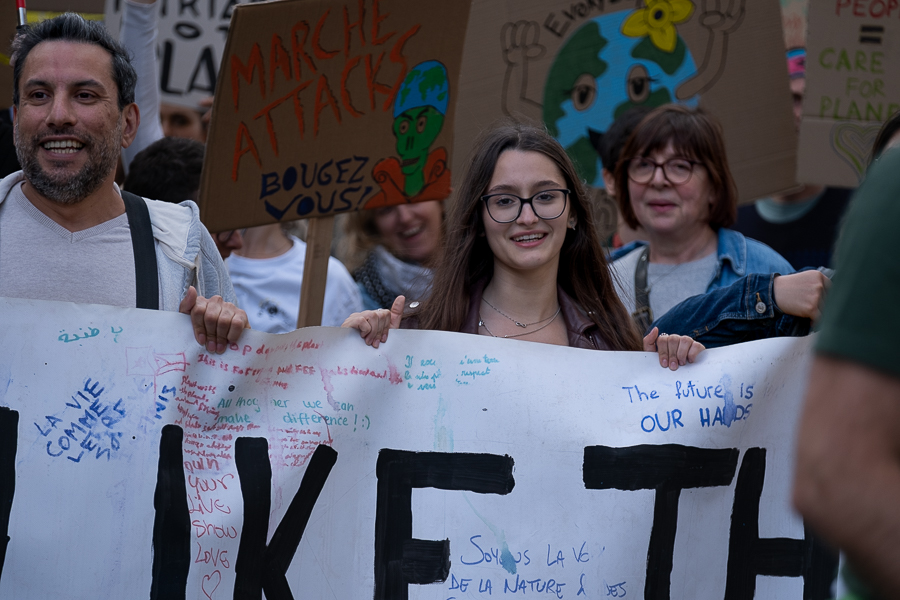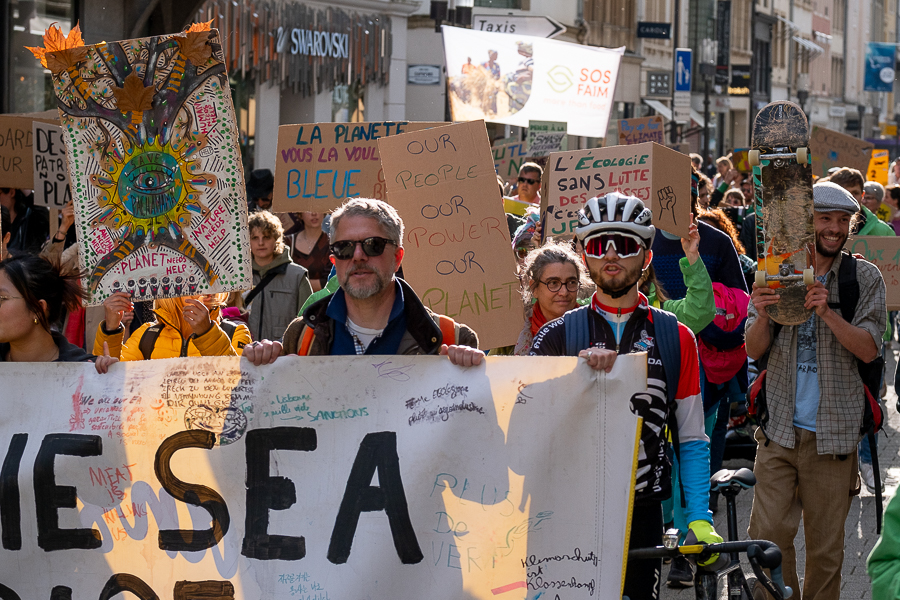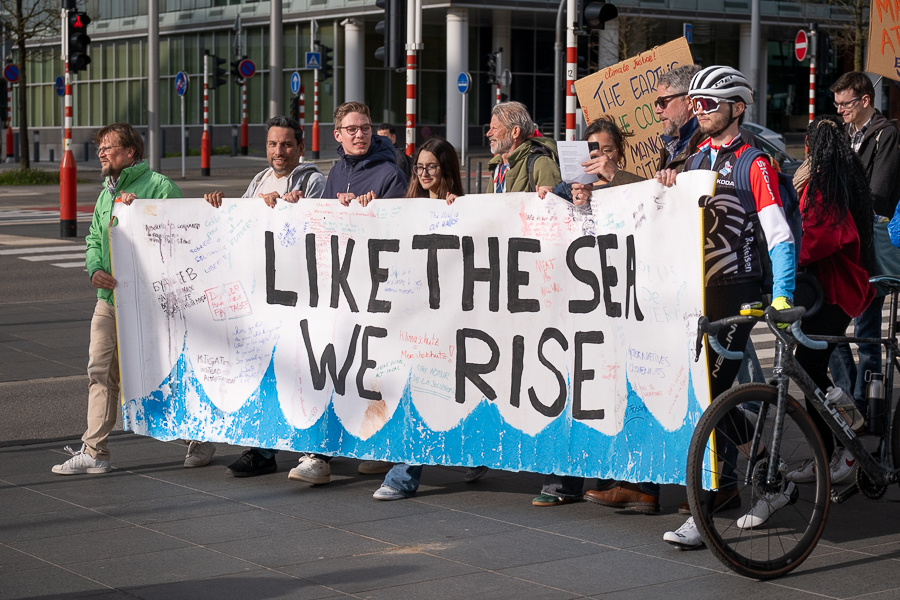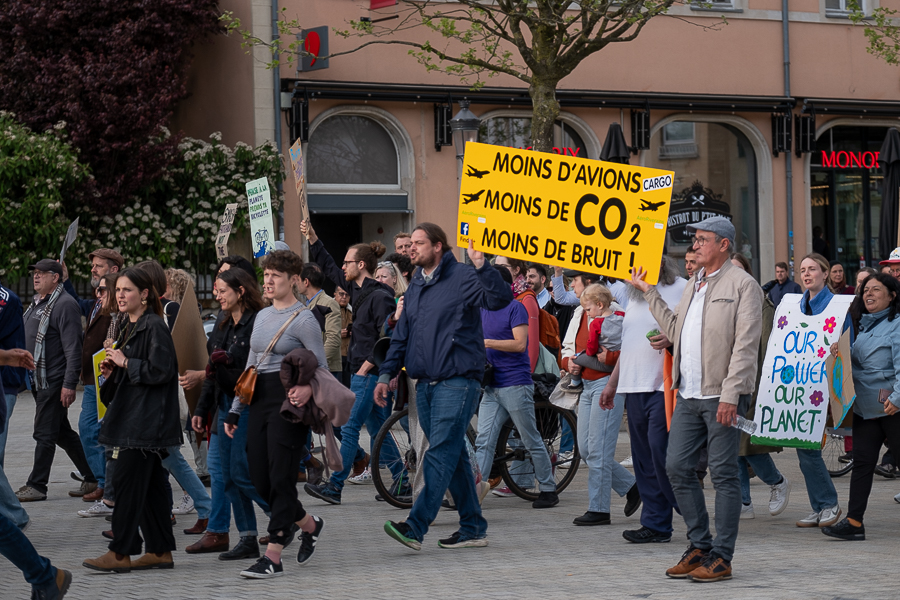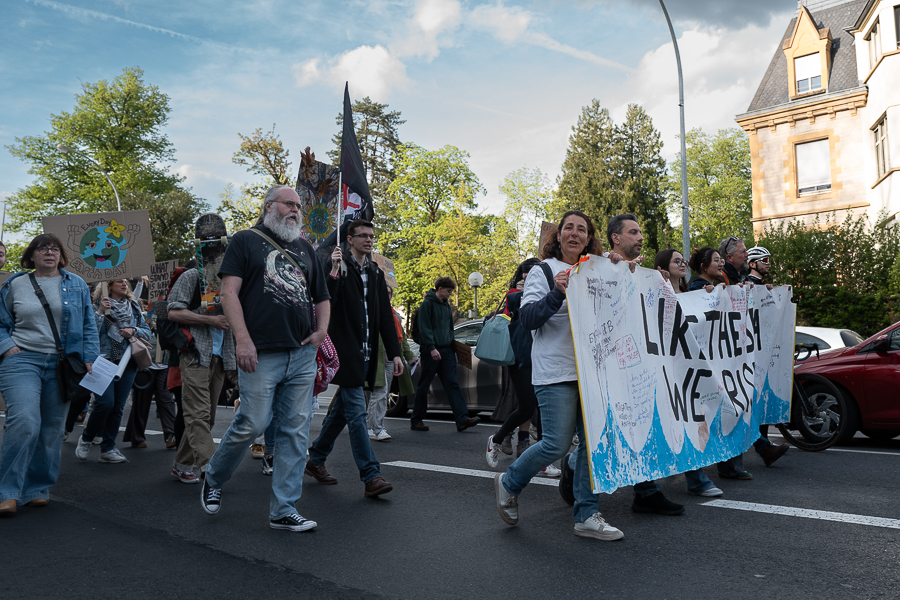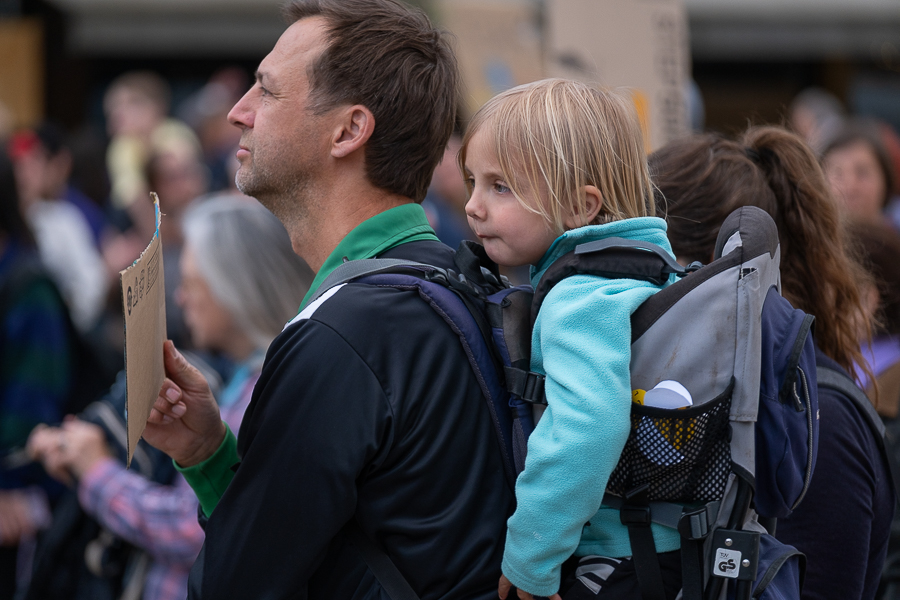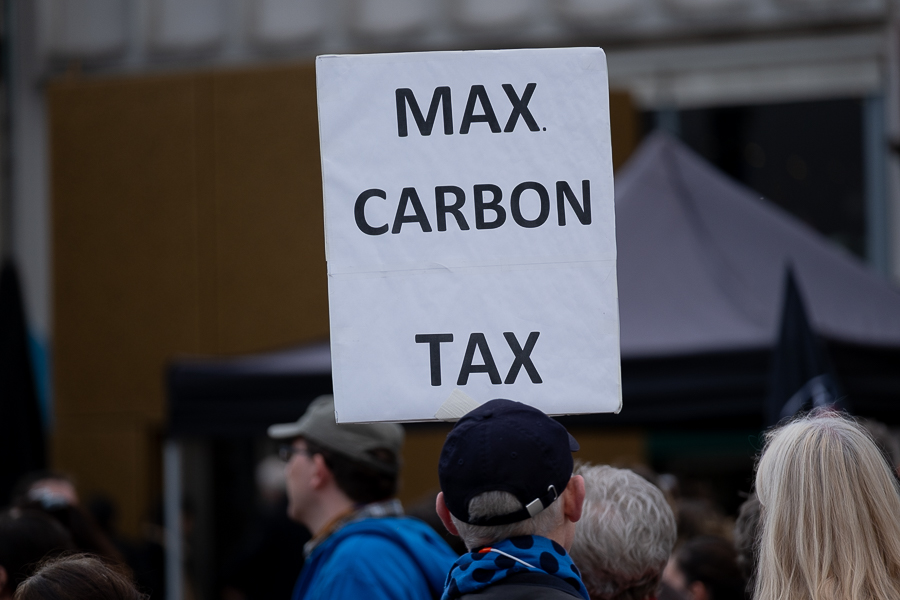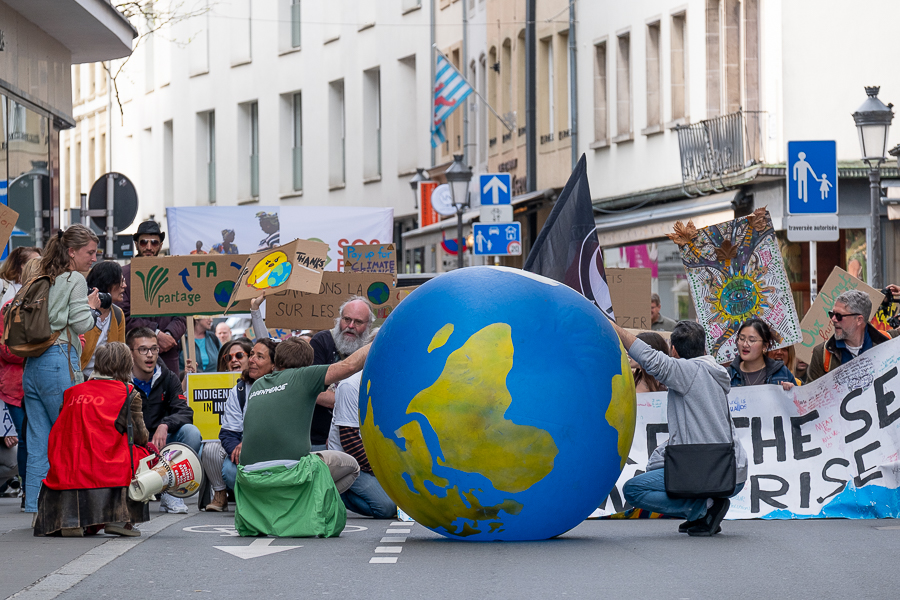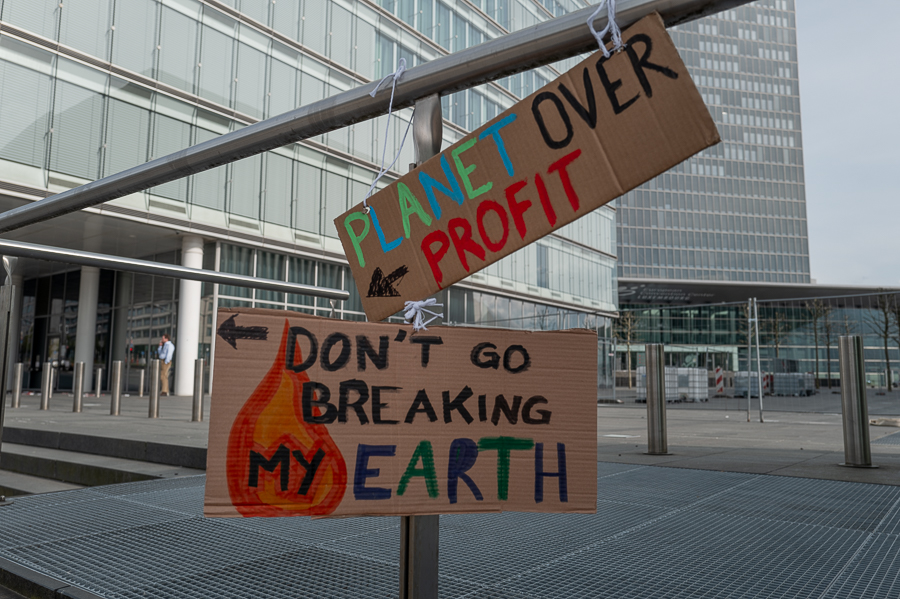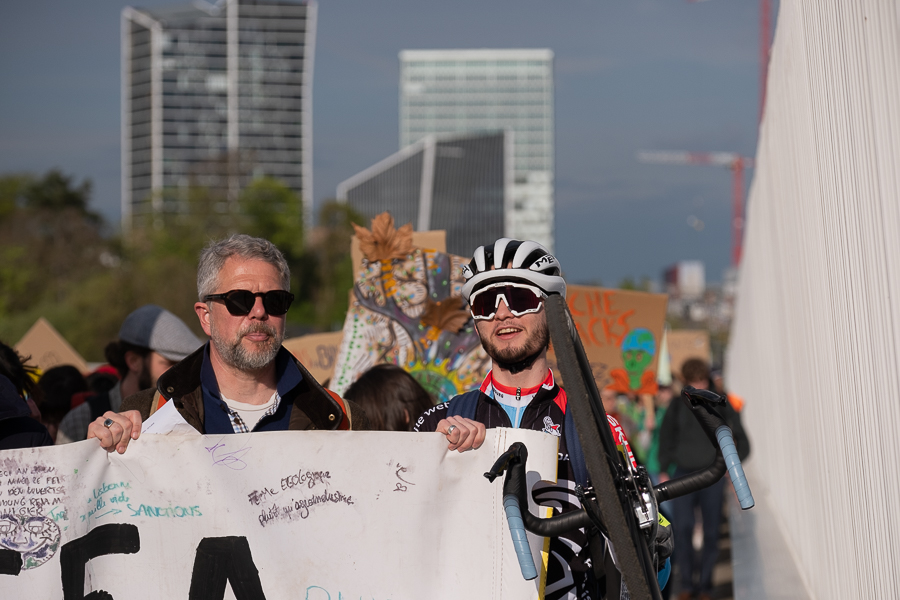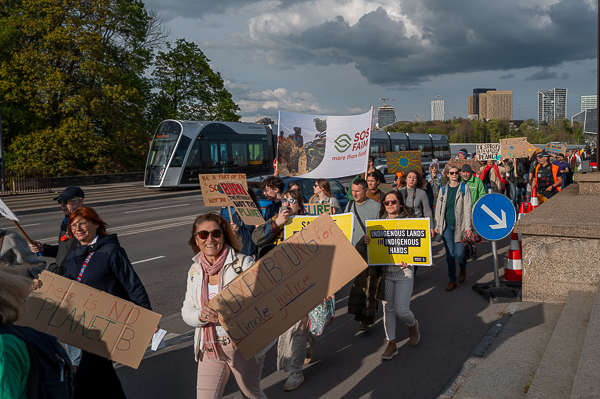 Luxembourg's March for Earth 2025;
Credit: Ali Sahib, Chronicle.lu
Luxembourg's March for Earth 2025;
Credit: Ali Sahib, Chronicle.lu
On Tuesday 22 April 2025, Earth Day, the March for Earth 2025 titled “Our Power, Our Planet” took place from Place de l'Europe in Luxembourg-Kirchberg to Place Guillaume II in Luxembourg-Ville.
The march was organised by Luxembourg’s Citizens for Ecological Learning and Living (CELL), together with Greenpeace Luxembourg, Kliko and Action Solidarité Tiers Monde (ASTM - Third World Solidarity Action), and was supported by more than 20 Luxembourg civil society organisations. The theme for Earth Day 2025 was “Our power, Our planet”, which focused on renewable energy and a call for global renewable energy generation to be tripled by 2030.
The aim of March for Earth 2025 was to highlight support for an accelerated transition to renewable energies and to decrease the use of fossil fuels, as well as to emphasise the disproportionate impact climate change is having on vulnerable communities.
Since 1970, Earth Day takes place each year on 22 April. It aims to raise awareness of environmental issues and show support for environmental protection. Over the years, it has evolved into a global day that recognises the vulnerability of the planet and the collective responsibility to protect it. People around the world show their support for environmental protection through various actions and initiatives.
Anna Topliski, Transition Network Coordinator at CELL, explained that the starting point at Place de l’Europe was deliberately chosen as it is located opposite Luxembourg’s Ministry of the Environment, Climate and Biodiversity. She said: “It was important to do it here, symbolically, in front of the ministry. Occupying this square also meant giving a voice to all these stories related to climate change. We know they exist - they're statistics, sometimes alarming figures - but we often forget that they speak of people like us, right next to us”.
A Climate Museum project, described by the organisers as one that places “the human experience at the heart of the climate crisis and gives a voice to those who are living it, here and now”, was also inaugurated. Luxembourg residents shared stories, letters, photos and objects associated with their personal experience of the climate crisis, both at Place de l'Europe, prior to the start of the march, and again at Place Guillaume II. All of the testimonies highlighted that climate change is not something abstract but is, in fact, impacting lives.
Among the speakers was a young woman who shared her experience of the floods in Verviers, Belgium. She recalled: "This event marked a turning point for my mental health. Thousands of people were left homeless or forced to live in deplorable conditions: mould, no electricity, no heating or hot water." A student from Venice, Italy spoke of the storm that resulted in more than 80% of the city being submerged. Another speaker outlined how insects in her garden had disappeared and the subsequent impact on the flowers and vegetation in the area.
Marie-Béatrice Noble, EU Climate Pact Ambassador, shared: "Our house in Luxembourg, on the banks of the Alzette River, flooded in 2021. The following year, the Verdon Canyon, which feeds the lake near our family home, dried up completely” . She highlighted that these two events had a profound impact on her, saying: "I now observe the birds, trees and insects with a kind of anxiety, for fear of seeing them disappear."
The approximately 150 participants marched through the city to Place Guillaume II, carrying placards, created at an artistic workshop that was held earlier in the day. Their demands included an accelerated phase-out of fossil fuels, global climate justice recognising the disproportionate impact on populations in the Global South, a just transition that excludes no one and a firm accountability of industrialised countries at COP30.
The organisers noted that March for Earth 2025 also denounced, through its slogans and speeches, the false responses to the crisis: the rise of climate populism, the illusion of all-technology and the drift toward security at the expense of international cooperation.
Marc Cascant, a member of the Greenpeace board of directors, recalled that "climate disasters do not strike randomly: they are often the most vulnerable populations [that] are paying the highest price. In the Valencian Community, for example, it is the working-class neighbourhoods that have been hit hardest, with few resources to recover.” He reaffirmed the urgency of a just ecological transition, which places people and the planet at the heart of its priorities: "We demand ambitious policies to reduce emissions, strengthen infrastructure to cope with extreme climate events, and guarantee climate justice for all."

